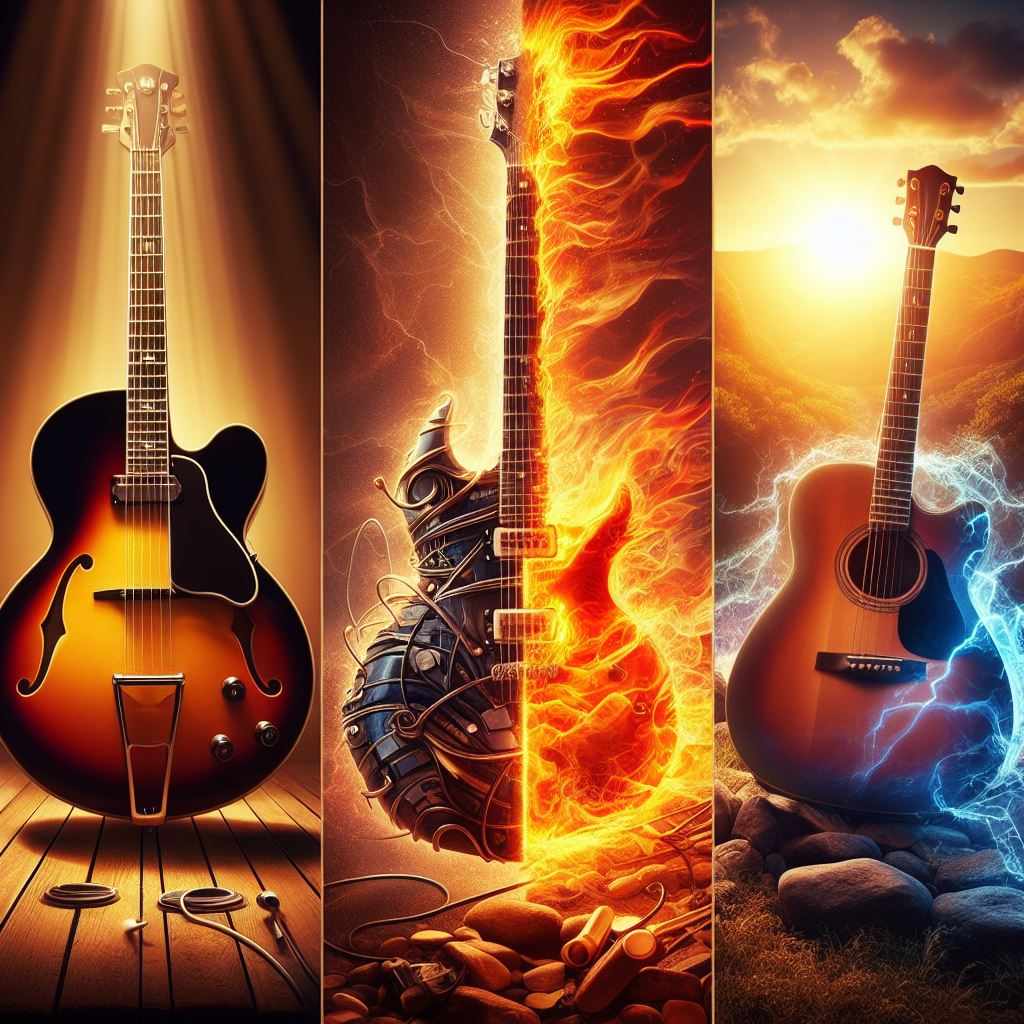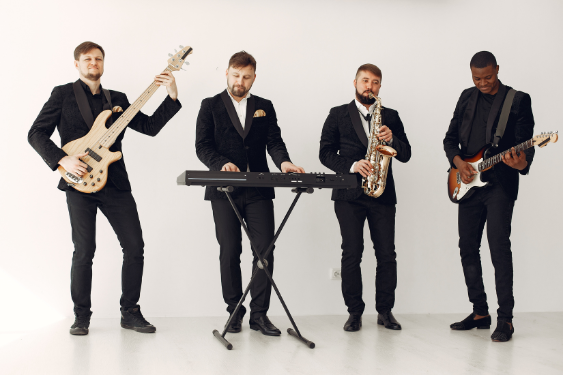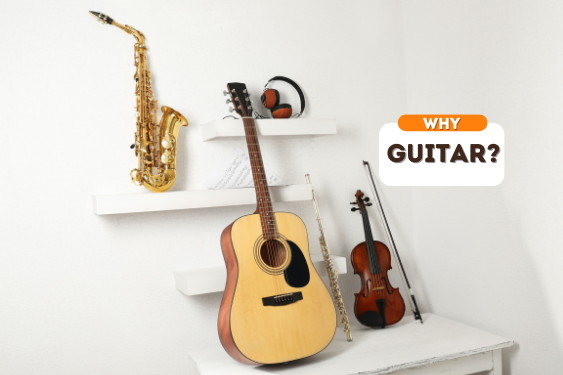Why guitar is the best instrument?
Few sounds instantly evoke raw emotional responses, like the riffs of an electric guitar. The ubiquitous presence of iconic guitars in mainstream music and culture imbues the instrument with perceptions of coolness and artistic flair. However, beyond the cultural cachet displayed by guitar gods from Jimi Hendrix to Nancy Wilson lies an exceptionally versatile and expressive instrument. This examination intends not to definitively declare the guitar an indisputable “best instrument,” but to showcase key assets establishing the guitar among the most venerated instruments for aspiring musicians to master and make a compelling case for why the guitar is the best instrument for creative expression and lifelong fulfillment.
Boundless Musical Canvas

Most instruments become associated with defined roles across certain genres. Violins drive orchestral pieces. Saxophones and trumpets punctuate jazz combos. While such specialization enables precise artistic visions, it limits applicability outside traditional domains. By contrast, guitars provide a sonic palette adaptable across countless styles, with functions spanning lead melodies, rhythmic comps, and textural layers. This versatility explains the ubiquity of guitar among bands and the sheer breadth of guitar-based musical genres. From the hollow-body guitars underlying smooth jazz to aggressive metal riffs distorting amp stacks, guitars channel both subdued subtlety and raw power. Such range creates a near-boundless musical canvas for guitarists to explore.
Emotional Communication

Great musicians infuse instruments with signature sounds that convey innate emotions and identities. Guitars exude a natural capacity for translating creative zeal into musical craft through personalized play. Effects pedals morph timbres, advanced techniques elicit otherworldly sounds, and customized gear configurations unlock inventive musical visions. The uncanny resemblance of guitar tones to wailing human voices further facilitates profound self-expression. While brass and woodwind instruments channel set motifs, guitars enable boundless sonic exploration and emotional communication customized to each player’s inspirations.
Also Read: The 10 Richest Guitarists in the World
Rewarding Lifelong Growth
Few instruments nurture ongoing mastery journeys like guitars. The intricate techniques involved in musical elements like chord voicings, harmonics, and advanced soloing offer complex yet conquerable challenges. Interlocking both hands in exacting coordination pushes physical dexterity, while memorizing chords exercises mental focus. Such multilayered demands ensure skill development never stales. Meanwhile, guitars accommodate players of all dedications and ability levels, with options spanning from beginner student models to professional tools suited for lifelong growth. This balance between attainable early progress and sustainably advancing mastery feeds lifelong enjoyment.
Accessible social avenues
Music inherently binds communities, but guitars possess exceptional qualities that bring guitarists together. The portable nature and approachable operation of guitars enable casual hobbyists and beginners to participate socially through informal performances. Backing tracks remove dependency on proficient bandmates, while compact acoustic guitars facilitate impromptu jam sessions at parties or open mic events. Such musical exchanges nurture supportive communities where seasoned veterans share wisdom and newcomers channel early inspirations. Guitars thereby transform musical growth into a shared social experience instead of a cloistered, solitary pursuit.
Legacy as a Cultural Symbol
Even among non-players, guitars evoke immediate recognition as an emblem of creative artistry. The legacy of guitar icons branding the instrument as the epitome of cool persists across generations and mediums. Today’s youth still adorn walls with classic rock band posters, even as television programming continues to showcase lighthearted characters casually strumming out tunes. Such a consistent cultural presence keeps the guitar on an enduring pedestal as a symbol of musical passion. Becoming a skilled guitarist grants access to that legacy, allowing practitioners to tap into profoundly human associations between guitars and artistic zeal.
Lifelong Value

Great instruments not only enable artistic expression but also provide sustaining, lifelong creative fulfillment. Unlike many other skill-intensive hobbies that wane physically over time, like competitive sports, the guitar offers legacy skills that accumulate continually across decades without fading. This capacity for enduring growth, paired with resonant cultural symbolism, explains lifetime dedications to the guitar as more than just a hobby—but a core artistic identity. Such lasting meaning shapes entire lifestyles around guitar for many practitioners.
In demonstrating these multilayered strengths, this examination intends not to coronate guitars but to spotlight several unique assets and complementing factors that establish other instruments among the greatest. Crafting musical magic requires deep commitment, regardless of instrument choice. Yet through their blend of expressive range, social community, cultural mystique, and capacity for lifelong growth, guitars provide one profoundly rewarding path. That enduring, emotionally resonant journey of mastery and musical communication compels legions of aspiring musicians to embrace this iconic instrument.
Conclusion
Ultimately, declaring any single instrument objectively superior makes little sense when appreciating music’s inherently subjective nature. Different instruments speak to different personalities and creative visions. However, in showcasing exceptional versatility, expressiveness, social connectivity, and deep cultural legacy, the guitar makes a strong case as an apex instrument. This explains why so many burgeoning musicians gravitate toward the guitar, even amid a sea of outstanding options. While personal preferences dictate individual instruments that resonate best, guitars objectively provide one supremely rewarding path. Through strings and vibration, guitars channel every shade of human experience, establish lifelong creative outlets and bind communities around raw artistic passion. For any developing musician searching for a conduit of both voice and legacy, the guitar provides an unparalleled vessel deserving of consideration alongside history’s most venerated instruments.





2 thoughts on “Why guitar is the best instrument? to Bridge Genres and Communities”